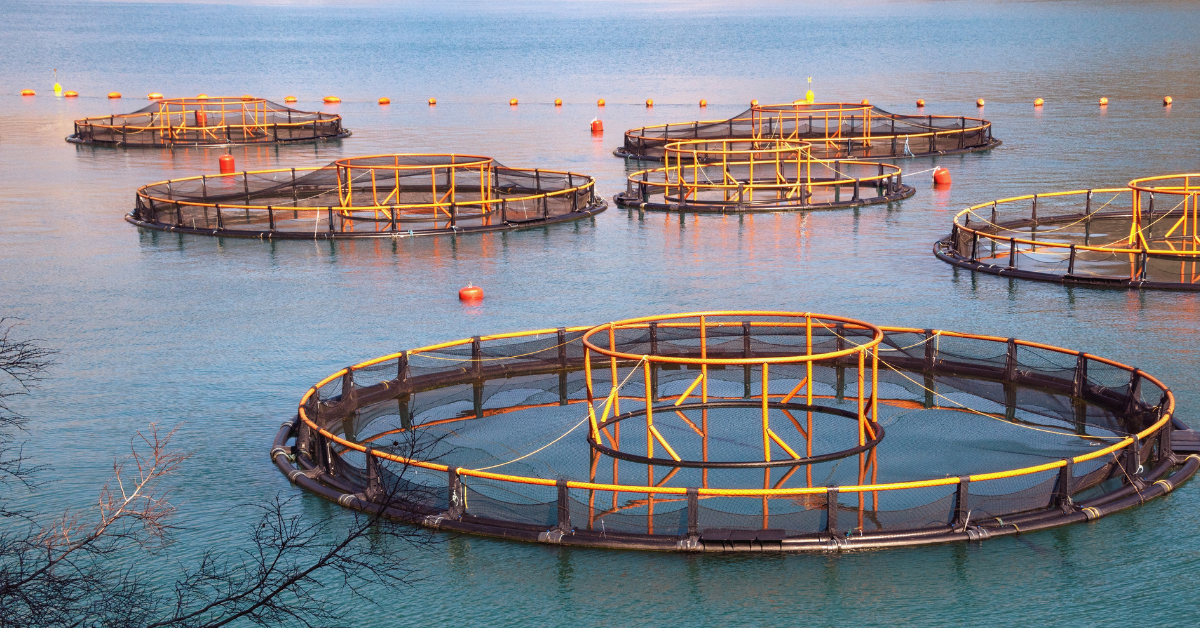Optimising Aquaculture Sustainability: Real-Time Environmental Monitoring With Load Cells 📰
18th Sep 2025The Problem
Aquaculture food production – which includes fish, shellfish, seaweed and algae – is experiencing a huge expansion both in the UK and abroad.
The increasing demand for seafood make careful aquaculture management essential for ensuring the future of seafood stocks.
So how does the industry direct its efforts towards boosting production levels while making sure environmental protection remains a priority?
Traditional methods of aquaculture management have focused mainly on production levels and equipment structural stability, while environmental aspects were largely ignored.
Today the industry requires urgent implementation of sustainable practices which now need careful monitoring and management.
In short, the industry must become more sustainable to survive.
The Solution
Using load cells as part of a sustainable strategy goes a long way in overcoming the problems traditionally found in aquaculture.
Load cells facilitate precise measurement instruments which can give real-time environmental updates on the state of the product.
Real-time measurements mean real-time responses so any changes can be dealt with quickly and efficiently, maintaining the optimum environment for healthy stock.
A New Perspective:Prioritising Enviromental Sustainability
In the past, aquaculture operations depended on two main variables: feed optimisation and stocking density. Errors in these manual and inexact checks impacted both fish health and output.
More recently the industry has realised that a more exacting method of data collection and control would not only increase yield but also benefit the marine ecosystem. For example, overcrowded fish pens mean excessive and uneven food consumption. This leads to nutrient pollution, which results in less oxygen and poor water quality. This impacts heavily on the biodiversity within the systems, leading to lower quality fish.
The aquaculture industry now understands that sustainable practices must combine productivity growth with environmental protection. Business success and ecosystem health depend entirely on continuous monitoring of tidal flow, wind conditions, waste management and nutrient flow to prevent adverse conditions.
This approach means using highly sophisticated monitoring systems which track environmental conditions as they happen. Real-time data enables aquaculture operators to operate their facilities at peak performance while reducing their environmental impact. Operators are empowered to make fast strategic choices, leading to greater operational efficiency, happier fish and better environmental protection.
A Tech-Driven Approach: Load Cells as Enviromental Sensors
Load cell sensors offer real-time measurement of essential data about both the structural stability of hardware – such as fish pens – and the environmental conditions.
This makes real-time, accurate environmental monitoring accessible to all users. This technology was previously considered a complicated and costly process. Today it is simple, cost-effective and straightforward.
Monitoring Structural Integrity and Environmental Impact
Fish pens and the structures which support them are the lifeblood of every aquaculture operation. Load cells measure forces that affect these structures, which include nets, mooring systems and cables. The continuous measurement of tension, compression and weight enables real-time assessment of the aquaculture system’s structural condition.
The system provides immediate alerts about potential structural issues. These alerts enable operators to stop problems before they cause major equipment breakdowns, such as a net failure or collapse resulting in stock loss and pollution in the surrounding area.
The implementation of load cells for system monitoring enables operators to identify problems early so they can prevent infrastructure damage and protect the surrounding environment.
Optimising Feed Distribution
Incorrect feeding of fish can result in a wide range of environmental issues. These can include nutrient pollution in which excess food and the waste product from fish provides too much nutrient to harmful weed, which in turn can seriously diminish oxygen levels in pens.
Load cells in feed dispensers and silos enable a precise amount of feed to be provided for each group of fish. This prevents fish from receiving too much food which would otherwise contribute to pollution. Exact feed control helps to cut costs and prevents water pollution that can result in suffocating algal blooms.
Ensuring Environmental Compliance
With technological progress comes the need for more robust environmental regulations. The combination of load cells with telemetry and data-logging systems enables operators to obtain exact real-time measurements which serve as proof for regulatory audits.
A load cell system also demonstrates a real commitment on the part of the operator to sustainable practices through transparent monitoring systems.
It is more straightforward than ever to supply inspectors with data gathered from load cells as part of an environmental compliance audit.
The nature of these systems also helps to build trust between aquaculture and its consumers, regulators and environmental organisations because it demonstrates dedication to sustainable practices.
LCM Systems Leads the Way in the Future of Aquaculture Through Its Load Cells
The future success of aquaculture depends on implementing modern technologies which optimise resource management, minimise environmental damage and support sustainable development.
LCM Systems has proven itself to be the leading company for specialised load cell solutions. We produce submersible load cells, load shackles and wireless monitoring systems which operate effectively in the most challenging of marine environments. The systems provide accurate real-time monitoring – allowing aquaculture operators to accurately track both structural and environmental data.
We are driving the development of aquaculture through solutions that enable large-scale environmental monitoring in real time. The implementation of LCM Systems’ load cells in aquaculture operations makes sustainability a realistic goal that all operators can achieve.
For more information on using Advanced Load Cells, Contact LCM today
